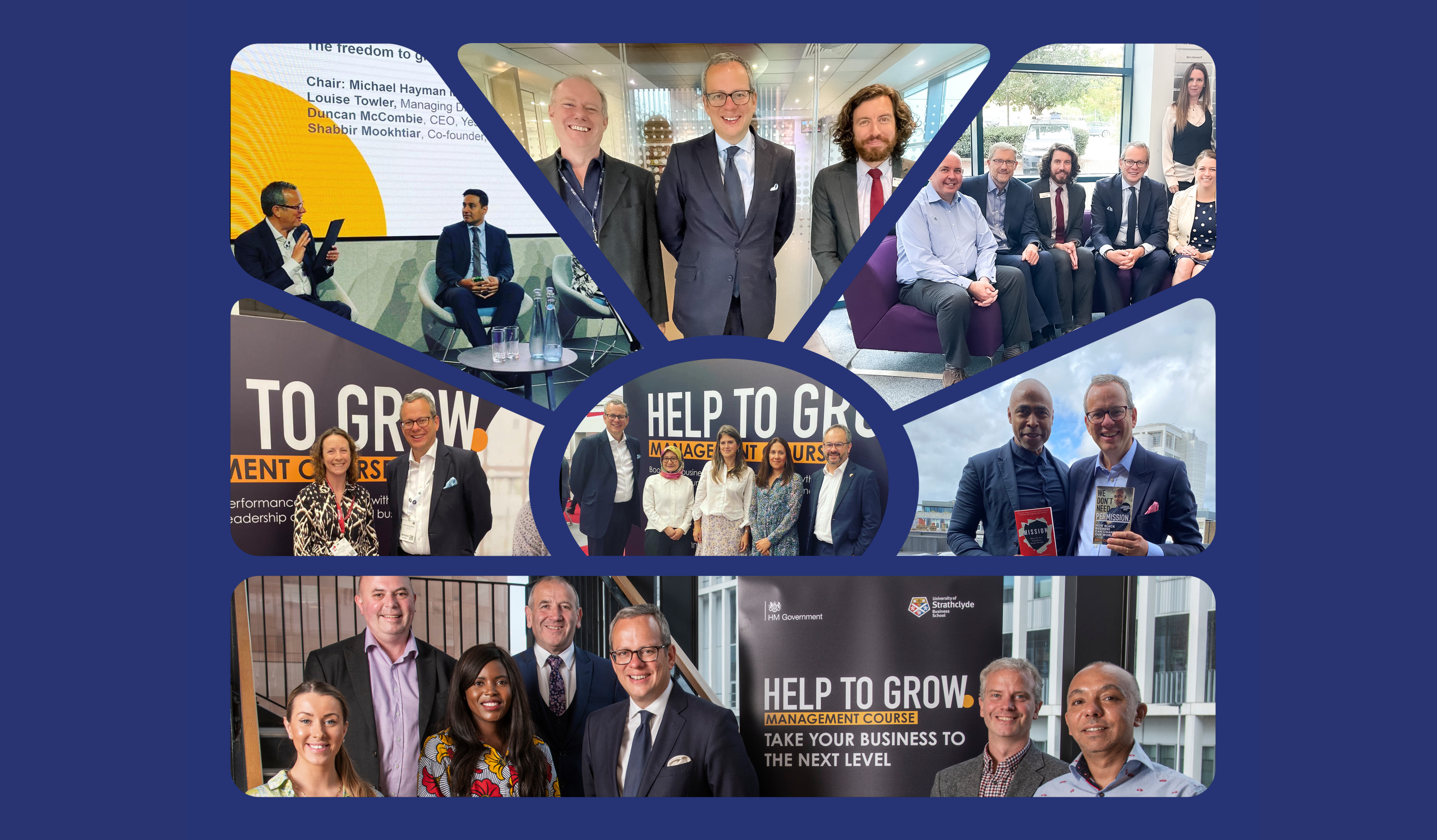
Small firms are the nation’s economic heartbeat and I’ve spent the Summer and early Autumn taking its pulse. This piece originally appeared in Elite Business.
Those that know me would, I believe, agree that my work allows me to meet a great many business leaders.
But the past few months have been my own version of an entrepreneur marathon, meeting more small business leaders than I’ve ever managed before. And it has left me thinking a great deal about how we are placed to weather the undoubted chilling economic headwinds that the nation faces.
If I was to sum up one abiding character asset of the people I’ve met it would be fortitude. The realism of the challenges faced and the resilience to dig deep to meet the challenge.
Two meetings spring to mind with small business leaders at the universities of Portsmouth and Strathclyde. Both of these business schools have been busily delivering the Help To Grow: Management programme through the Small Business Charter, which is an organisation I chair. The course is 90% funded by the government and is delivered by well over 50 business schools the length and breadth of the UK. To my mind it’s a tool kit for tough times.
To spend time with entrepreneurs is always good for the soul. You meet people who have taken the plunge, making jobs when they could have taken one, doing something exceptional for customer, colleagues and family alike.
Strathclyde and Portsmouth are at opposite ends of the country but there is plenty that unites them in the attitudes on display at the meetings I attended. If there is a reason to be optimistic about the future this is it. Growing companies with the ambition, talent and ideas to make it.
The mood seems to be one of macro realism but micro positivity. That is to say a great sense of uncertainty around the economic state we are in but individual optimism about the ability to weather the gale. It’s why the management course is an important one. In an environment of unparalleled challenge it is skills and know how that become a premium.
All of the businesses on the course that I met voiced an appreciation for the great benefit from the expertise they were able to access. But there was more to it than that. Confidence and community were also benefits, especially among women-led firms, that were seen as major assets to come from the experience. Bringing people together matters, especially for small firms who often lack a peer group to access readily available expertise to help.
My own experience of building a firm was that you have to make an awful lot of it up as you go along. But it would have been a lot easier to learn from past mistakes than to make your own.
Business is also a journey and its one best travelled together. It’s why the growth in individual confidence is such an important benefit from the course. And it’s there to be catalysed. If my summer of meeting small firms could be summed up then it would be by the old African saying that “If you want to go fast, go alone, if you want to go far, go together”. That togetherness is the key to enduring growth and the entrepreneur-led recovery that the government seeks.
If there is a message it is how it won’t be the ‘me’ but it could be the ‘we’ that delivers it.